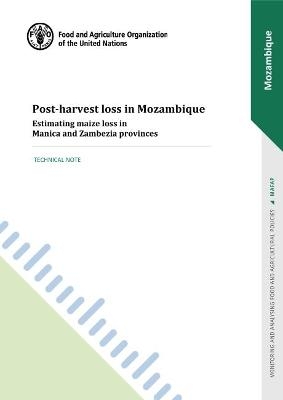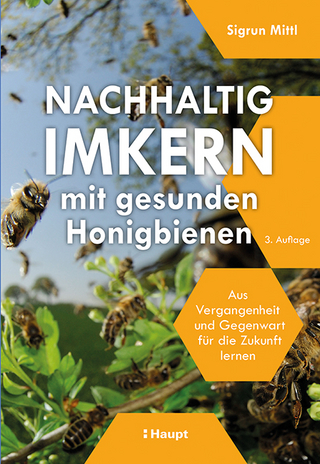
Post-harvest loss in Mozambique
estimating maize loss in Manica and Zambezia provinces, technical note
Seiten
2022
Food & Agriculture Organization of the United Nations (FAO) (Verlag)
978-92-5-135156-7 (ISBN)
Food & Agriculture Organization of the United Nations (FAO) (Verlag)
978-92-5-135156-7 (ISBN)
This study measures losses across the maize value chain in Mozambique, in terms of both quantity and the economic cost of deterioration in quality. Causes behind the losses include bad weather, poor stock, pests and diseases.
In Mozambique, food security remains a key issue and the country suffers perennial food shortages, especially in the provinces of Manica, Tete, Sofala, Zambezia, Maputo and Gaza. Weaknesses in post-harvest systems, which contribute to both a lower supply and higher food prices (due to post-harvest losses) are key reasons behind these food shortages. Currently, none of the post-harvest losses programmes conducted in Mozambique provides loss estimates along the entire value chain for a given commodity.In this report, we quantify losses across the value chain in maize, which is a key staple food in Mozambique, in the provinces of Manica and Zambezia. The study, carried out by the International Food Policy Research Institute (IFPRI) in collaboration with the Agrifood Economics Division (ESA) at FAO, sheds light on understanding the magnitude, nature and consequences of food losses across the maize value chain in selected regions in Mozambique. In particular, the methodology used in this report allows to accurately measure food losses and identify in which segment of the value chain these food losses occur and the causes of the losses
In Mozambique, food security remains a key issue and the country suffers perennial food shortages, especially in the provinces of Manica, Tete, Sofala, Zambezia, Maputo and Gaza. Weaknesses in post-harvest systems, which contribute to both a lower supply and higher food prices (due to post-harvest losses) are key reasons behind these food shortages. Currently, none of the post-harvest losses programmes conducted in Mozambique provides loss estimates along the entire value chain for a given commodity.In this report, we quantify losses across the value chain in maize, which is a key staple food in Mozambique, in the provinces of Manica and Zambezia. The study, carried out by the International Food Policy Research Institute (IFPRI) in collaboration with the Agrifood Economics Division (ESA) at FAO, sheds light on understanding the magnitude, nature and consequences of food losses across the maize value chain in selected regions in Mozambique. In particular, the methodology used in this report allows to accurately measure food losses and identify in which segment of the value chain these food losses occur and the causes of the losses
| Erscheinungsdatum | 14.01.2022 |
|---|---|
| Zusatzinfo | col. figs, tables |
| Verlagsort | Rome |
| Sprache | englisch |
| Themenwelt | Weitere Fachgebiete ► Land- / Forstwirtschaft / Fischerei |
| ISBN-10 | 92-5-135156-2 / 9251351562 |
| ISBN-13 | 978-92-5-135156-7 / 9789251351567 |
| Zustand | Neuware |
| Haben Sie eine Frage zum Produkt? |
Mehr entdecken
aus dem Bereich
aus dem Bereich
Buch | Hardcover (2023)
DLG-Verlag
CHF 109,95
aus Vergangenheit und Gegenwart für die Zukunft lernen
Buch | Softcover (2024)
Haupt Verlag
CHF 39,95
Buch | Hardcover (2023)
Haymarket Media (Verlag)
CHF 44,50


